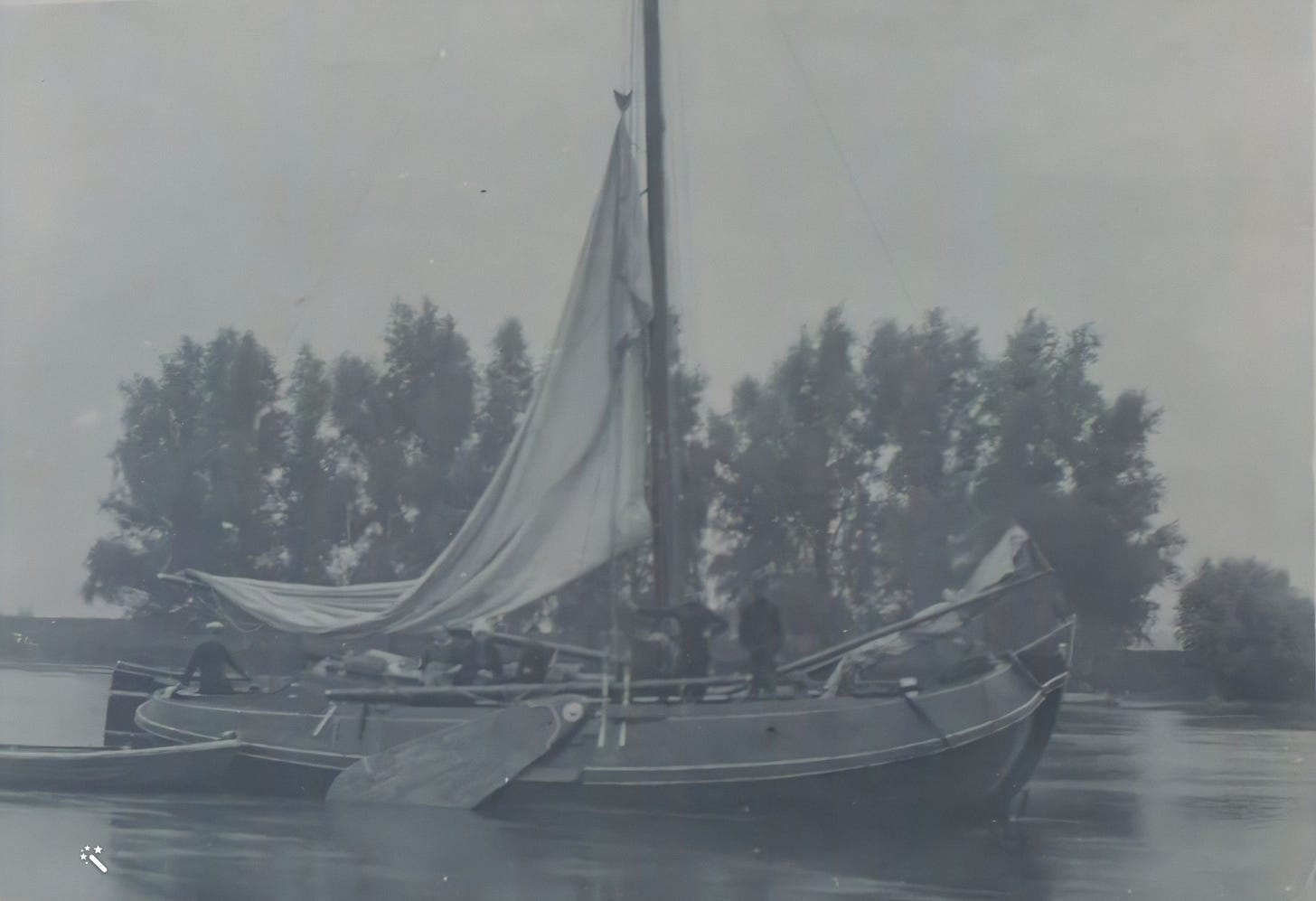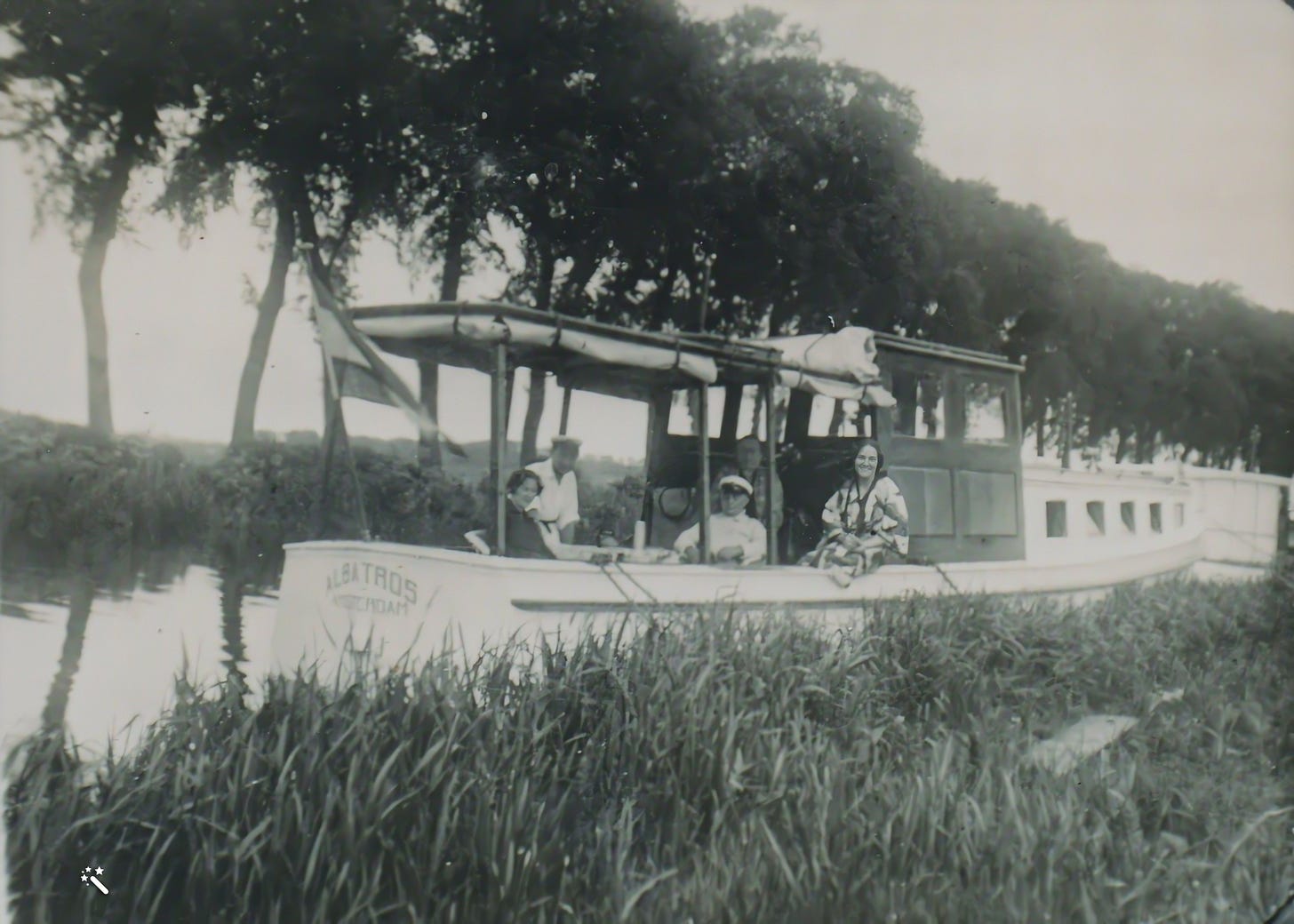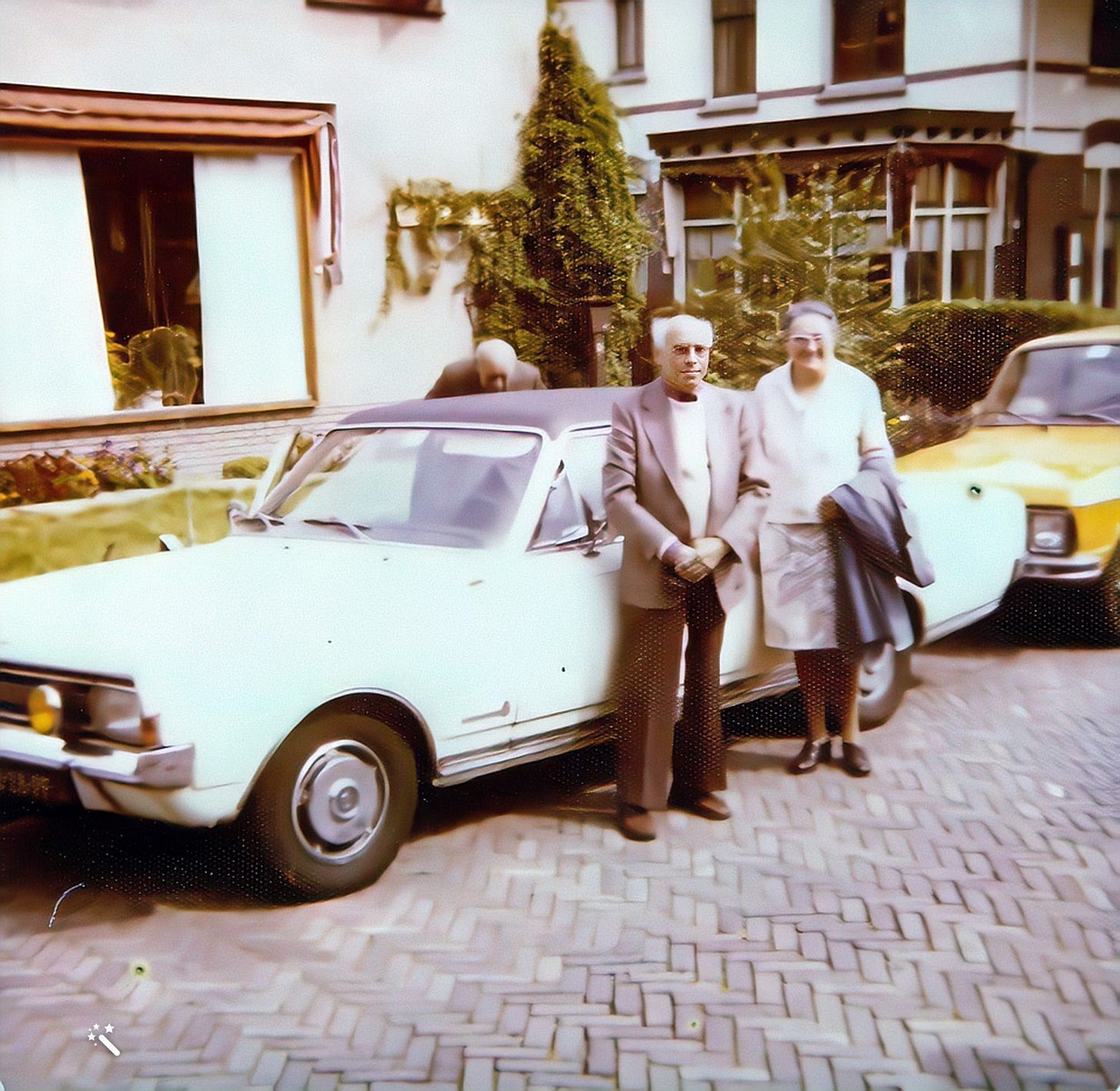‘Let me tell you about Dad’s younger brother now, Uncle Herman. In most ways Uncle Herman and Dad were just about as close as you and Gemma, but they had their differences.
Dad liked sailing, Uncle Herman preferred his river launch.
Uncle Herman had no interest in biology, Dad’s hobby was collecting molluscs; he had a huge collection and he knew the Latin names of every shell that could be found on our beach.’ ‘Was that why you got interested in marine biology too, Grandpa?’ ‘It certainly must have been a big factor, Tracy.
All right, more differences. Dad was hopeless at drawing anything other than mathematical stuff, but when Uncle Herman was forced to stay indoors during the last three war years and even had to stay away from the front windows so neighbours couldn’t see him, he took up oil painting and watercolours.
He did really beautiful little paintings. They had to be little, so the paints Aunty Greet was able to buy for him would last till the end of the war. He was the one who started me on art.
And even there the difference was quite obvious: Dad loved looking at paintings and he had several books that explained how paintings of the old masters were composed, how the eye would follow certain lines or colours in a painting to a focal point, and more of that stuff.
Uncle Herman would put the theory aside, and work on the composition of his own paintings until it felt right. ‘A painting is not an exercise in theory,’ he said, ‘ but a way to tell others about what you feel.’
Dad was the serious one, Uncle Herman never quite lost his more exuberant, almost school boyish ways. Uncle Herman had no children of his own when I was a youngster, and he took a special interest in me.
I have one real regret in that regard: I never realized that his interest never changed even after he had a son of his own. Could I have shown more how much I appreciated him? He was not a good letter writer, we only got two, or maybe three letters a year once we settled in New Zealand.
We regularly wrote to him and Aunty Greet, but it wasn’t until after his death that we discovered he had kept every letter we ever wrote and had complete scrapbooks with everything about us. We never knew just how much he cared for us.
He was always there, even very early on already. One day, when I was seven or eight, he came to visit us. On his way he called in at a little toyshop around the corner. The shop was run by an elderly lady, Daatje, who sold toy cars and paper kites and wooden tops which you had to keep spinning with a small whip. You could make those tops fly through the air and land further down the road, still spinning, and if you were really good at it you could keep them going all the way to the corner.
Daatje also sold caps for our cap guns, for one cent a little box. That day Uncle Herman bought a whole guilder’s worth of them. Hundred boxes of caps, all bundled up in an old newspaper. Dad thought it was silly to buy so much at once, but to me it was an absolute treasure.
Us kids played with toy pistols all the time. That was what we saw around us every day: armed soldiers, bombs, anti-aircraft guns. I recall one time when the Germans attacked some English planes. We saw the whole thing while we were at school.
One plane caught fire and was flying down at a steep angle, trailing flames and smoke until it crashed. Another plane lost one of its wings. That plane fell almost straight down and the wing was fluttering slowly behind it, like an old leaf of a tree. It took forever to fall all the way and nobody got out with parachutes, so the people were still inside.
I had a male teacher by then and he got angry: ‘Look at your work. We’re here to learn, not to stare out of the window at a bunch of aeroplanes.’
Uncle Herman was the first in our family to own a car, three, maybe four years after the war. He needed it for his work and after waiting for a long, long time he got allocated a small Peugeot.
That was in mid winter and the village was deep in snow. So, he got all the kids in our street to tie their sledges onto a long rope behind his car. Then slowly – but did it feel fast! – he drove around and around the block. The snow was soft and nobody in the neighbourhood had a car anyhow, so there was no other traffic. Perfectly safe.






What a beautiful picture of a beautiful man. And the best Uncle ever! You gave him and us the biggest gift with this simple yet poetic writing. Thank you.